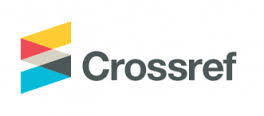The Role of Jordanian Universities in Enhancing Ethical Education Among Their Students to Deal with the Digital Age
DOI:
https://doi.org/10.59759/educational.v4i3.1257Keywords:
Ethical Education, Jordanian Universities , Digital Age.Abstract
This study aimed to identify the role of Jordanian universities in enhancing ethical education among their students to deal with the digital age, and to determine the impact of certain independent variables such as gender and faculty type. The study sample consisted of 340 male and female students from public universities (University of Jordan, Mutah University, and Yarmouk University) for the academic year 2024-2025. To achieve the study's objectives, a questionnaire consisting of 24 items was developed, and a descriptive survey methodology was employed.
The results showed that the role of Jordanian universities in enhancing ethical education among their students to deal with the digital age was high across all dimensions. The results also indicated that there were no significant differences at the significance level of (α=0.05) in the study sample's perceptions of the role of Jordanian universities in enhancing ethical education among their students to deal with the digital age, according to the Sex and faculty type variables.
In light of the study's findings, the researchers recommend activating seminars and training courses by specialists to develop students' awareness to understand all that is new in the digital age, including its risks and ethics, and to emphasize the importance of clarifying the ethics of dealing with technology to students.
Downloads
References
Abdullah.T, Alam.A &Sanauddin.N(2024),Moral Education in the Digital Age: A Durkheimian Exploration of Values Transmission through Online Learning, International Journal of Distance Education and E- Learning (IJDEEL) ,X(1),85-100.
Hukubun.M , Wakhudin.R& Kasimbara.P (2024) . Character Education in the Digital Age: Strategies for Teaching Moral and Ethical Values to a Generation that Grows Up with Technology, Jurnal of Pedagogi: Jurnal Pendidikan, 1(3),74-82.
Nyangaresi. J, Nasongo,J& Injendi.J (2024). Teachers’ Perspectives on the Effectiveness of Moral Strategies for Character Formation in Public Secondary Schools in Kakamega County, Kenya, African Journal of Empirical Research ,5(4),695-707.
Xiong.D, Butdisuwan. S& Santaveesuk.P(2025). Innovative Approaches of Moral Education in Colleges and Universities: A Case of Sichuan Institute of Industrial, Interdisciplinary Academic and Research Journal, 5 (1), 165-182.
Yusnita, E., Prasetiyo, A. E., Hasanah, U., Octafiona, E., & Rahmatika, Z. (2023). Shaping Teenagers’ Moral in the Digital Era: Islamic Education Perspective. Intelektual: Jurnal Pendidikan dan Studi Keislaman, 13(1), 1-15.
Camón, T. (2025). Ethics and privacy in the digital age from the perspective of creating safe spaces. Art, technology and ethics. Artnodes, 35, 1-8.
Qiuxia, F. (2019). How to improve the effectiveness of moral education in colleges and universities under the background of new media? 2019 International Conference on Education, Management, Social Science and Humanities Research, China.
Yusuf, S., & Sulaiman, B. (2023). Moral education strategies for early childhood in the digital age. Edukasi Islami: Jurnal Pendidikan Islam, 12(3), 901-912.


